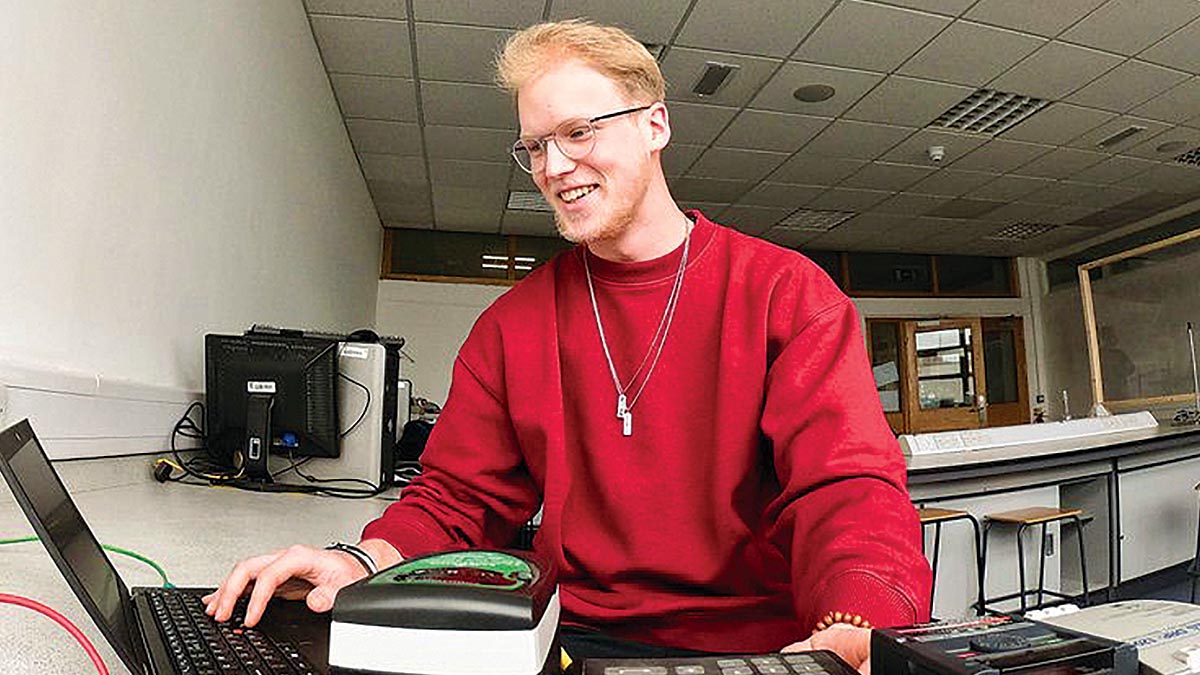WIT first with level 8 degree in automation engineering
AS industry transitions towards ‘Industry 4.0’ — and there is an increased need for modern automation engineering that incorporates data intelligence — Waterford Institute of Technology’s (WIT) Department of Engineering Technology has developed a new degree to offset a skills shortage.
The nationwide skills demand for automation and control engineers was also emphasised in the Forfas report: ‘Future Skills Requirements of the Manufacturing Sector to 2020’. According to LinkedIn, presently, in Ireland alone, there are more than 2,000 vacancies in the automation engineering sector.
Explains Programme Leader Dominick O’ Brien:
“WIT is constantly reviewing the content of the courses we deliver to make sure they are up to date and in line with industry needs and trends. Following honest and open discussions with over a dozen industrial partners, who are engaged with technology across the South-East region, it was clear and evident that a dedicated Level 8 programme was needed to address the severe skillset shortage in modern Automation and Control engineering.
“Consequently, this course was developed with, and for, our industrial stakeholders to ensure that the appropriate blending of engineering and computer science is applied in order to provide graduates with the skillset to launch an exciting and sustainable career in modern automation engineering,” said Mr O’ Brien.
WIT is the first institute of technology to launch a Level 8 degree in automation engineering: The Bachelor of Engineering (Hons) in Automation Engineering in is available on the CAO for 2021 entry, and has been available as one of five options for students on the institute’s common entry engineering degree since September 2020.
Niall Barry, Senior Principal Automation Engineer, Bausch + Lomb, Waterford and WIT graduate told The Kilkenny Observer: “Modern automation engineering combines elements of electronic engineering, software, robotics, networking, databases and data intelligence, which are highly sought-after skills in sectors such as the medical device, pharmaceutical, and food industries, and indeed beyond.
“This course offers a strong technical background in these fundamentals, coupled with real-world Industry work experience, and will allow graduates to avail of roles in the Automation/Controls/Vision Engineering space.”
Gergo Villanyi, a past pupil of St Augustine’s College, Dungarvan, Co Waterford who will be moving into Year 2 of the BEng (Hons) in Automation Engineering in September said:“The main reason I decided to choose the automation engineering branch was because I have always been very interested in the behind the scenes of how machines work, and the whole idea of automation and robotics has always fascinated me. I also like to think I have the right mind for it as I have a practical sort of thinking, trying to find what’s most efficient in certain situations.
“Another reason is that I like to think ahead and saw where the future of engineering is; with near fully automated production lines, self-driving vehicles, etc. Automation was the clear choice in my eyes,”
The Bachelor of Engineering (Hons) in Automation Engineering is a new degree option being offered to CAO applicants who choose to study Engineering (Common Entry). This increases the total number of specialisms to five available under common entry engineering – which gives students time to choose what they would like to specialise in.
Students experience all five options in semester one and at the beginning of semester two choose between the combined Automation, Electrical and Electronic stream or the combined Sustainable Civil and Sustainable Energy stream with the final choice of their exact specialism made from the chosen stream at the end of Semester Two.

















